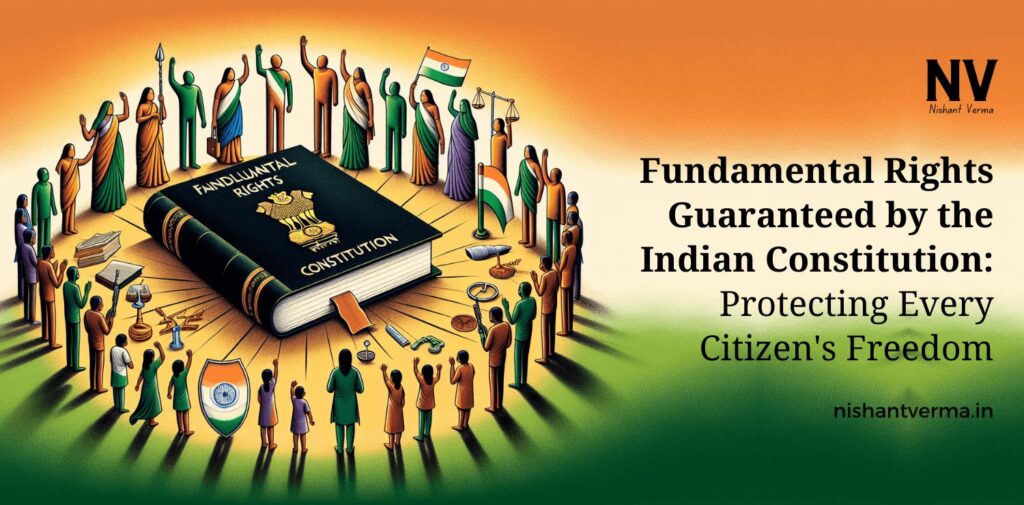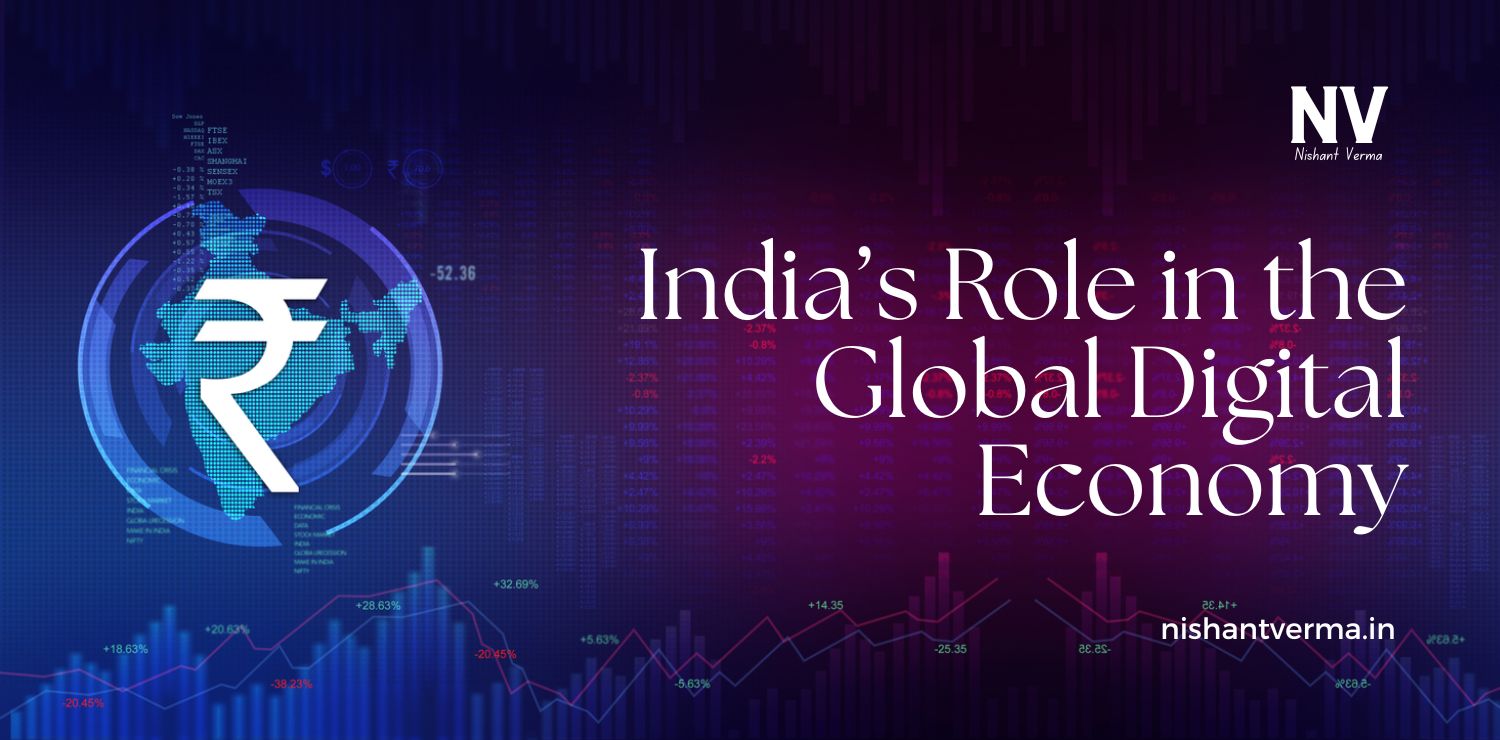The Indian Constitution, adopted in 1950, is the supreme law of India and lays down the framework for how the country’s government operates. One of the most significant and unique features of this document is the Fundamental Rights it guarantees to all citizens of India. These rights are essential because they protect the basic freedoms and equality of individuals, ensuring that the government treats every citizen fairly and justly.
In this article, we will explore what these Fundamental Rights are, why they are important, and how they help protect the citizens of India. We’ll break it down in an easy-to-understand way so that everyone can grasp the essence of these rights.
What Are Fundamental Rights?
The Fundamental Rights in India are a set of rights enshrined in Part III of the Indian Constitution, and they form the backbone of India’s democracy. These rights are not just privileges; they are guarantees that every citizen is entitled to enjoy, regardless of their background, religion, or social status. These rights are designed to safeguard individual freedom and ensure that citizens are treated with dignity and fairness.
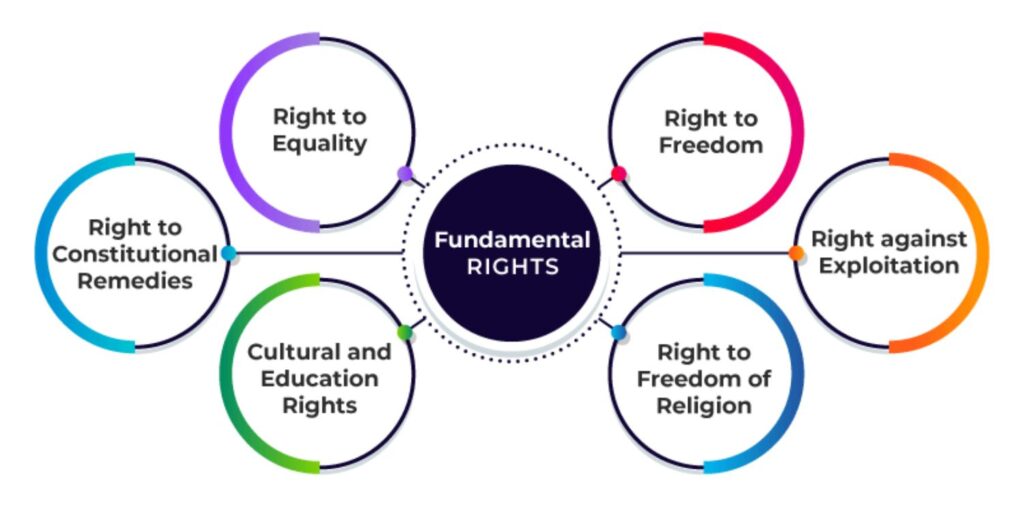
There are six Fundamental Rights listed in the Constitution, and they are:
- Right to Equality
- Right to Freedom
- Right Against Exploitation
- Right to Freedom of Religion
- Cultural and Educational Rights
- Right to Constitutional Remedies
Let’s take a closer look at each of them to understand how they work and what they mean for the common man.
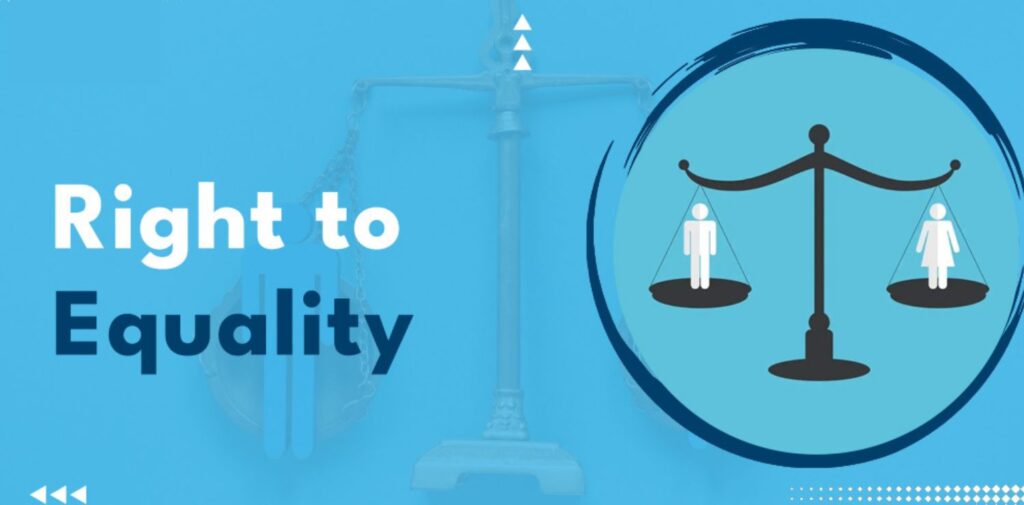
Right to Equality:
The Right to Equality is the first and one of the most important Fundamental Rights. It ensures that every person is treated equally before the law and guarantees that no individual faces discrimination based on their religion, caste, gender, or place of birth.
This right includes several key provisions:
- Equality before the law: This means that everyone is subject to the same laws, and the law does not favour any individual or group over another.
- Prohibition of discrimination: No one can be discriminated against based on their religion, race, caste, sex, or place of birth.
- Equality of opportunity: Every citizen has an equal opportunity to access public offices and employment, without any bias or favouritism.
This right helps create a more just and equal society by ensuring that no one is treated unfairly or denied their rights based on personal characteristics.
Right to Freedom
The Right to Freedom guarantees several freedoms to citizens, allowing them to live with dignity and without fear of unnecessary government interference. This right includes:
- Freedom of speech and expression: Every person has the right to express their thoughts, ideas, and opinions freely, as long as they do not harm public order or national security.
- Freedom to assemble peacefully: People can gather in groups and express their views through peaceful protests or demonstrations.
- Freedom to form associations or unions: Citizens are free to form groups, unions, or societies for any lawful purpose.
- Freedom to move freely: Every person has the right to travel and reside anywhere in the country.
- Freedom of profession: Citizens can engage in any occupation, trade, or business of their choice.
However, it’s important to note that the Right to Freedom is not absolute. It is subject to reasonable restrictions in certain cases, such as when it may affect the sovereignty, integrity, or security of the nation.
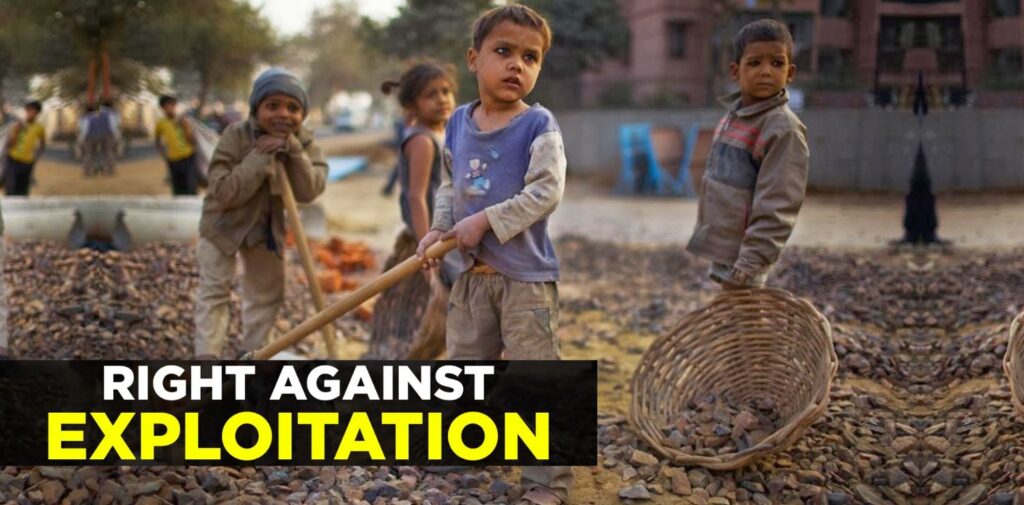
Right Against Exploitation
The Right Against Exploitation aims to protect citizens from being exploited or treated unfairly by others. This right prohibits:
- Traffic in human beings: It is illegal to buy or sell human beings (i.e., human trafficking is a crime).
- Forced labour: No one can be forced to work against their will, and the practice of “begar” (forced labour without pay) is outlawed.
- Child labour: The Constitution prohibits the employment of children under the age of 14 in hazardous jobs or factories, ensuring that children’s rights are protected and that they can have a safe childhood and access to education.
This right ensures that no one is subject to unjust treatment or forced labour, which can have devastating effects on a person’s dignity and freedom.
Right to Freedom of Religion
India is a multi-religious country with people following various faiths. The Right to Freedom of Religion guarantees the freedom to practice, profess, and propagate any religion of one’s choice. This right protects:
- Freedom of conscience: Every citizen has the right to follow the religion of their choice.
- Right to manage religious affairs: Citizens are free to establish and maintain places of worship, manage religious institutions, and teach their religion.
- Non-interference by the state: The state cannot interfere in religious practices, except when it involves matters of public order or safety.
This right ensures that everyone can follow their faith without fear of discrimination or persecution, making India one of the most religiously diverse countries in the world.
Cultural and Educational Rights
The Cultural and Educational Rights protect the rights of minorities (based on religion or language) to preserve their culture, language, and traditions. This includes:
- Protection of minority cultures: Citizens belonging to a minority group have the right to preserve their culture and heritage.
- Right to education: The state cannot deny any child from a minority group the opportunity to receive education in their native language or culture. This is particularly important for linguistic minorities.
- Right to establish educational institutions: Religious or linguistic minorities are allowed to set up and manage educational institutions of their choice.
This right helps preserve India’s rich cultural diversity, ensuring that every community has the opportunity to express and maintain its unique traditions.
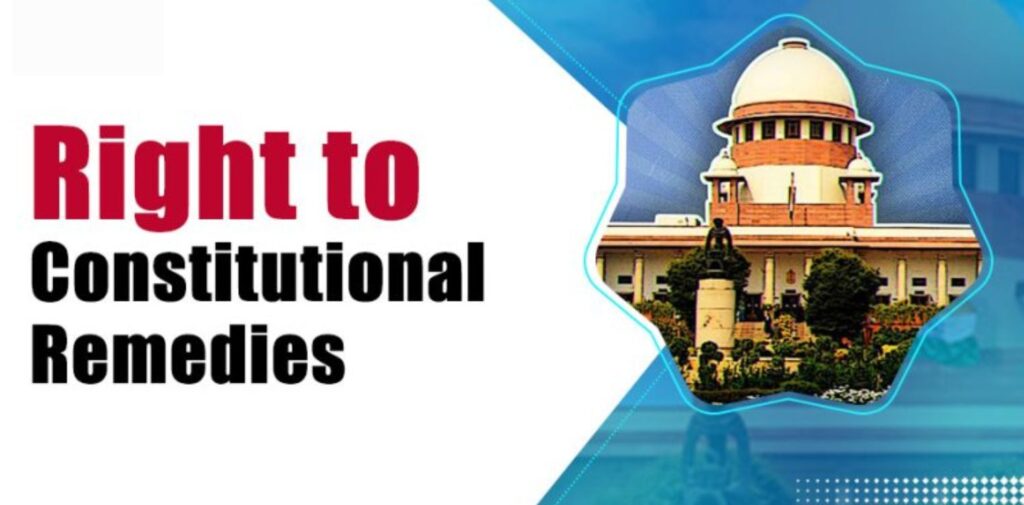
Right to Constitutional Remedies
The Right to Constitutional Remedies is one of the most powerful Fundamental Rights because it allows citizens to approach the courts if their fundamental rights are violated. This right empowers individuals to challenge unlawful actions by the government or any authority that infringes on their basic rights.
Under this right, citizens can move the Supreme Court or High Courts to seek justice if their Fundamental Rights are being violated. The courts have the power to issue writs (orders) to protect citizens from unlawful actions, such as habeas corpus (to ensure personal liberty), mandamus (to direct a public authority to do its duty), and prohibition (to stop unlawful acts).
This right acts as a safeguard for all the other Fundamental Rights, ensuring that no one can take away the basic freedoms of an individual.
Why Are Fundamental Rights Important?
The Fundamental Rights enshrined in the Indian Constitution are crucial for several reasons:
- Protection of Individual Freedom: These rights ensure that each citizen’s personal freedom, dignity, and security are protected.
- Equality for All: Fundamental Rights provide equality and prevent discrimination based on race, religion, caste, gender, or place of birth.
- Access to Justice: The right to approach the courts ensures that no one can be deprived of their rights without a fair hearing.
- Promotion of Democracy: By guaranteeing the right to freedom of speech, assembly, and expression, these rights help promote democratic values and allow citizens to participate in the political process.
- Safeguarding Minorities: The rights also protect the interests of minorities, ensuring that they can practice their religion and culture freely.
Conclusion
The Fundamental Rights granted by the Indian Constitution are the bedrock of democracy and justice in India. They ensure that every citizen, regardless of background, can live with dignity, freedom, and equality. These rights protect individuals from exploitation, allow them to practice their religion freely, and give them the tools to fight for justice in the courts.
By upholding these Fundamental Rights, India remains a nation that values human dignity, diversity, and fairness, providing a strong foundation for progress and equality for all its citizens.

